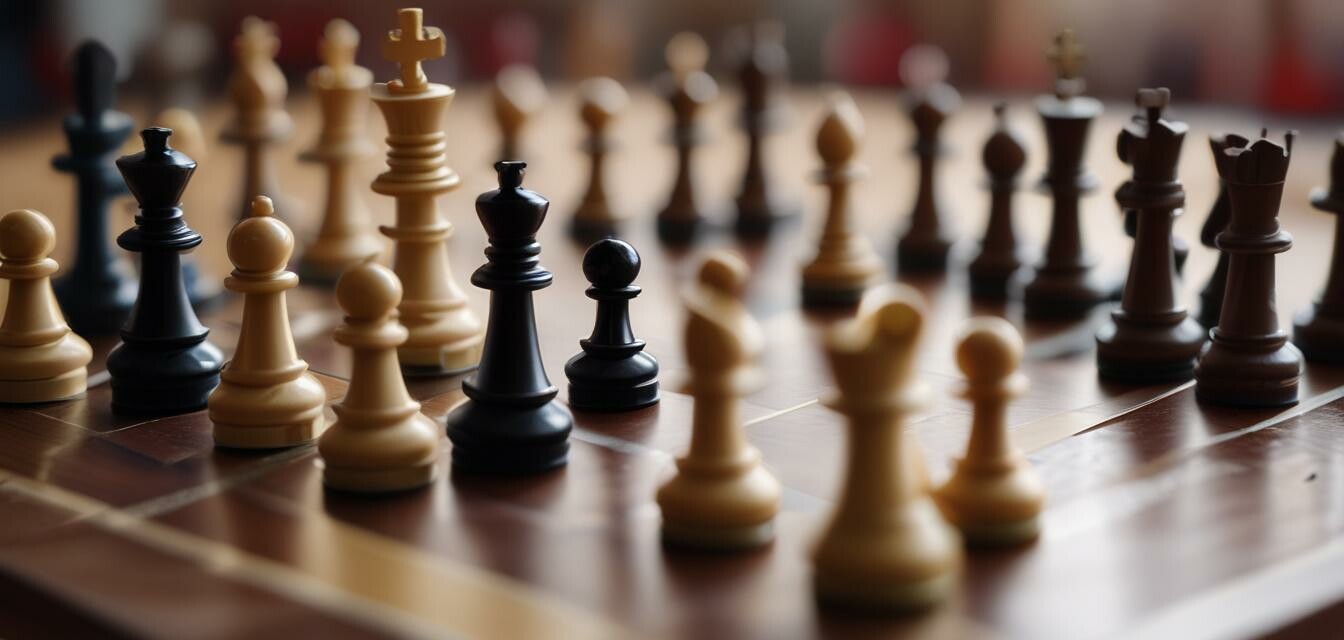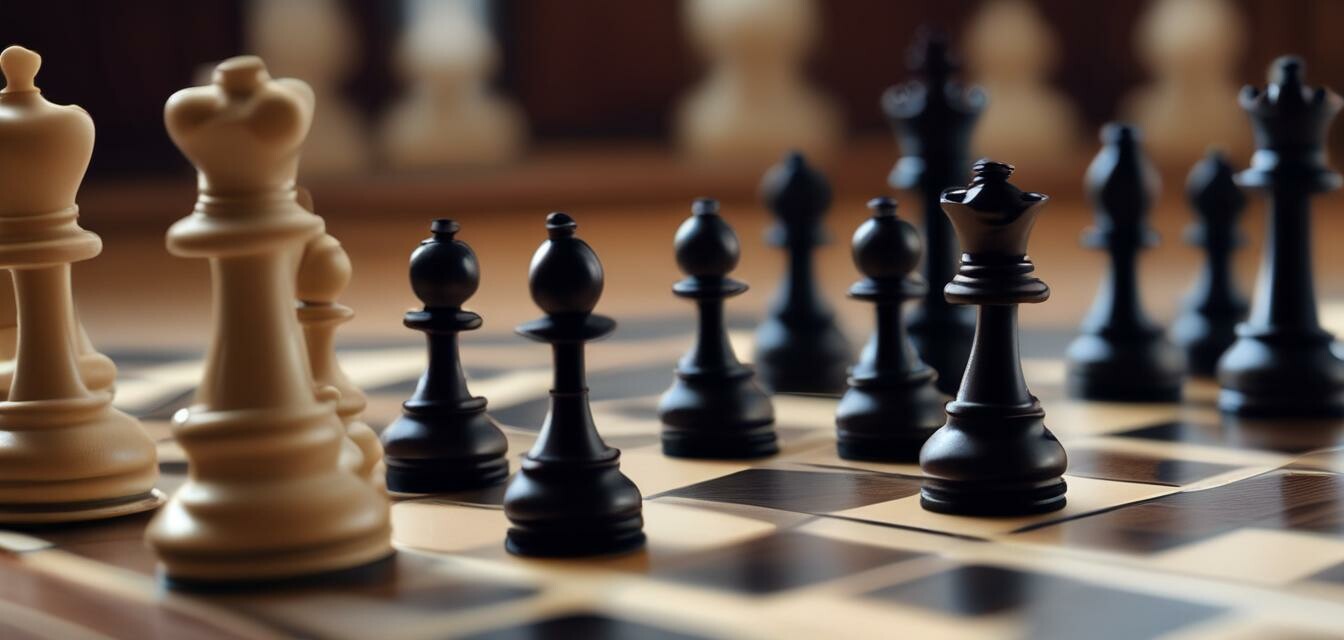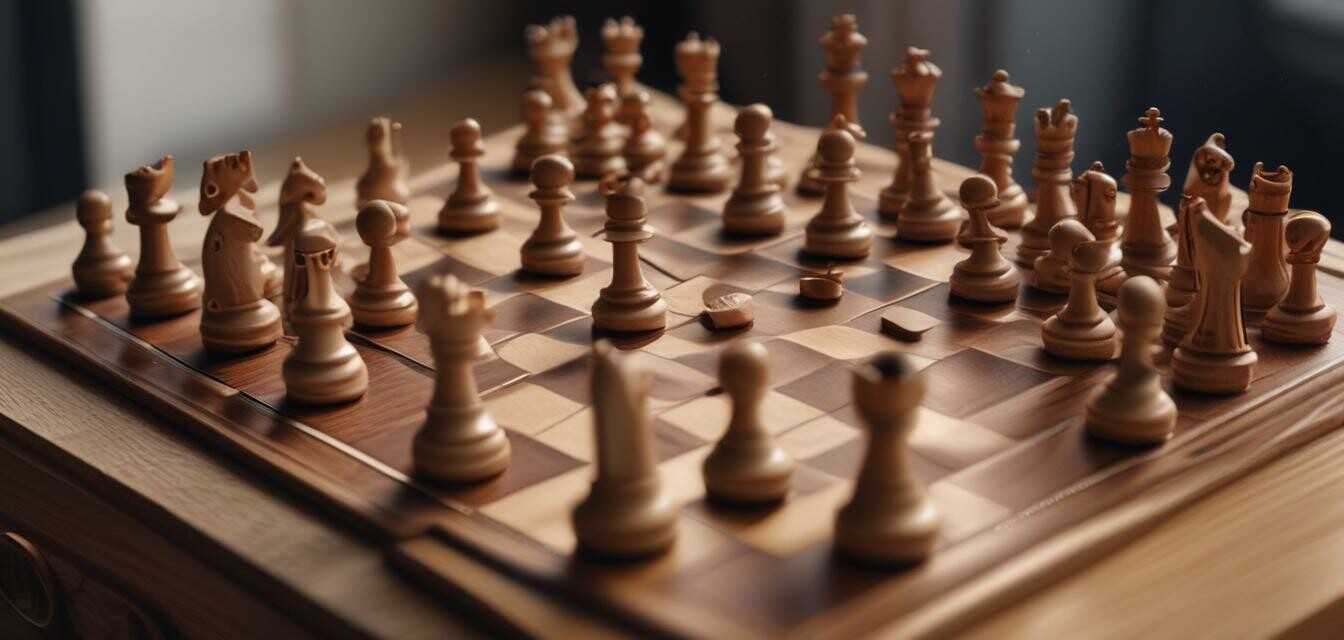
Chess for Beginners
- Understanding the rules of chess is essential for beginners.
- Basic strategies can significantly improve your gameplay.
- Practice regularly to enhance your skills and strategies.
- Learning from common mistakes can accelerate your improvement.
Chess is not just a game; it’s a fascinating journey into strategy and tactics. Whether you're looking to play casually with friends or dive deep into competitive play, understanding the fundamentals is your first step. This guide will help you grasp the rules, strategies, and tips essential for beginners. Let's embark on this exciting journey into the world of chess!
Understanding the Rules of Chess
The first thing every beginner should learn are the basic rules of chess. Below is a comprehensive overview:
| Chess Piece | How It Moves | Special Rules |
|---|---|---|
| Pawn | Moves forward one square, captures diagonally. | Can move two squares forward on its first move. |
| Rook | Moves in straight lines, horizontally or vertically. | Can participate in castling. |
| Knight | Moves in an "L" shape. | Can jump over other pieces. |
| Bishop | Moves diagonally. | No special rules. |
| Queen | Moves in any direction. | No special rules. |
| King | Moves one square in any direction. | Cannot move into check; involved in castling. |
Basic Strategies for Chess Beginners
Once you’re familiar with the rules, it’s important to start thinking about strategy. Here are some essential strategies to consider:
- Control the Center: The center squares (d4, d5, e4, e5) are crucial for controlling the game.
- Develop Your Pieces: Focus on getting your pieces off the back row and into play.
- Protect Your King: Consider castling early to ensure your king’s safety.
- Avoid Unnecessary Moves: Each move should have a purpose to avoid wasting time.
- Think Ahead: Always plan your moves and consider your opponent's possible responses.
Common Mistakes to Avoid as a Beginner
Everyone makes mistakes, but being aware of common pitfalls can help you avoid them:
- Neglecting Piece Safety: Don’t leave pieces exposed; always consider their safety.
- Overextending Pawns: Avoid moving too many pawns out at once, which can lead to vulnerabilities.
- Ignoring Development: Make sure to develop your pieces rather than focusing only on attacking.
- Being Reactive: Rather than just reacting to your opponent's moves, always have a plan of your own.
Helpful Tips for Chess Beginners
- Practice Regularly: The more you play, the better you will become.
- Watch Chess Games: Observing experienced players can provide insights into strategies.
- Use Online Resources: Take advantage of online tutorials and chess puzzles for practice.
- Join Local Clubs: Engaging with a community can enhance your understanding and enjoyment of the game.
Recommended Resources for Learning Chess
To further your understanding of chess, explore these useful resources:
- Explore our chess sets to find the perfect board for your games.
- Check out our checkers section for additional games to expand your collection.
- Learn about backgammon, a game of strategy that complements your chess skills.
- Consider branching into Chinese checkers for a fun twist on classic strategy games.
- Delve into cribbage, another strategic game that enhances your cognitive skills.
Conclusion
Chess is a profound game that offers endless opportunities for learning and improvement. By understanding the rules, developing effective strategies, and practicing regularly, anyone can become a skilled player. Embrace the challenge, and enjoy your journey in the world of chess!
Pros
- Enhances critical thinking abilities.
- Can be played at any age.
- Offers endless possibilities and creativity in gameplay.
Cons
- Can be complex for new players.
- Requires time and patience to master.
- Risk of frustration when losing.









